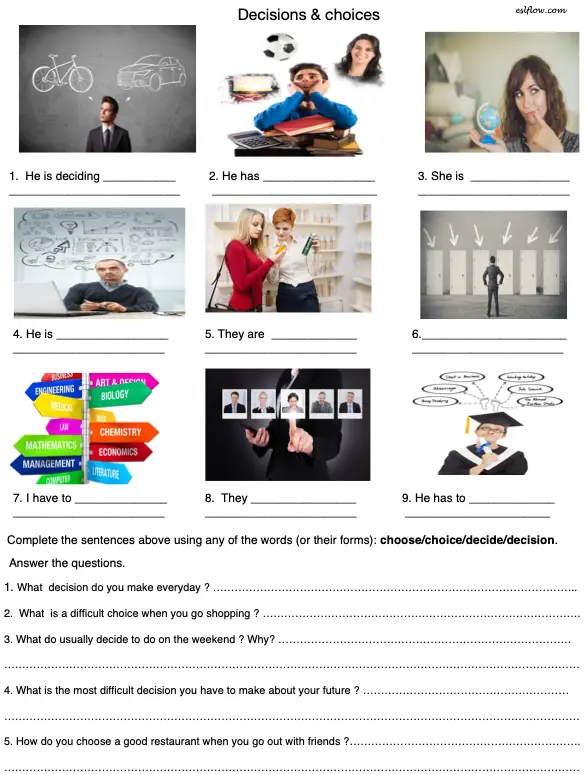Making Decisions and Choices: Language for Critical Thinking in English
This page is dedicated to providing resources and exercises that will equip students with the necessary language and vocabulary to effectively use language for making decisions and choices.
1 Making decisions
This is a listening/speaking exercise exploring the language used when making decisions and choices.
(download extract Decisions and Choices PDF)
Subscribe to Eslflow
Subscribe to get full access to the latest and best resources from eslflow.com. There are no ads in the newsletter and you will receive entertaining, high quality, and up-to-date teaching resources regularly. Also, you can quickly download large collections of teaching materials in zip files. And, if you subscribe, you will be supporting the eslflow website.
2 Verb-noun collocations for making decisions
This worksheet consists of a vocabulary-picture matching activity, listening exercise and speaking activity for making decisions and talking about life-changing decisions.
3 Making decisions icebreaker
An easy way way to introduce the topic.
4 Making decisions introduction
This is an introduction to a lesson about making decisions including: a classifying exercise; a “true/ false statement exercise” exercise; and a collocation exercise.
5 Making decisions: critical thinking
This is a more advanced critical thinking exercise about making decisions including: a ranking exercise; a “agree/disagree statement exercise” exercise; and a sentence starter exercise.





